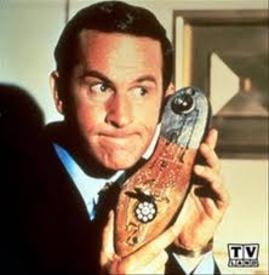Science only please - the case against 1200 kcals
Options
Replies
-
Ok, that's really interesting. I do find that I lose more weight if I increase the protein %. Now there's science that shows this may not be my imagination! Not only that, it's physics, which is my degree! Yay!0 -
Doctor Fung explains this in a series of lectures:
Part 1 http://www.youtube.com/watch?v=YpllomiDMX0
http://www.youtube.com/watch?v=YpllomiDMX0
This is a presentation on why diets fail to work
part 2 http://www.youtube.com/watch?v=dimP7IdM2Og
http://www.youtube.com/watch?v=dimP7IdM2Og
and here is the solution
the Fasting solution http://www.youtube.com/watch?v=pG89j432w-Y
http://www.youtube.com/watch?v=pG89j432w-Y
you can also load up the men who made us thin on youtube and it will say the same thing.0 -
My only thing is:
How can you fit ice cream and/or pizza into a 1200kcal/day plan?0 -
To answer the question "where did 1200 come from" i think it came from the research done by Willard Krehl. I'm sticking with the 4 food groups I learned in the 70's. If I eat 1200 calories, so what. 2500 calories, so what. I'd rather get my micros in than worry about calories.
" The first principle is that you must not fool yourself - and you are the easiest person to fool" Feynman0 -
Minnesota Starvation Experiment as a basis for an argument against LCDs for overweight / obese adults just doesn't hold water for me. Sorry, Dr. Fung.0
-
Addressing more of the long-term implications versus short term comparing VLCD to LCD diet plans, this paper is interesting:
The Evolution of Very-Low-Calorie Diets: An Update and Meta-analysis (2006)
Abstract
Objective: Very-low-calorie diets (VLCDs), providing <800 kcal/d, have been used since the 1970s to induce rapid weight loss. Previous reviews of the literature have disagreed concerning the relative efficacy of VLCDs vs. conventional low-calorie diets (LCDs) for achieving long-term weight loss.
Research Methods and Procedures: We sought to update findings on the clinical use, safety, and efficacy of VLCDs and to perform a meta-analysis of randomized trials that compared the long-term efficacy of LCDs and VLCDs. Original research articles were retrieved by a Medline search and from prior reviews of VLCDs. Trials were included only if they were randomized comparisons of LCDs and VLCDs and included a follow-up assessment at least 1 year after maximum weight loss. Data were abstracted by both authors regarding: duration of VLCD, total length of treatment, attrition, short- and long-term weight loss, changes in weight-related comorbidities, and adverse effects.
Results: Six randomized trials were found that met inclusion criteria. VLCDs, compared with LCDs, induced significantly greater short-term weight losses (16.1 ± 1.6% vs. 9.7 ± 2.4% of initial weight, respectively; p = 0.0001) but similar long-term losses (6.3 ± 3.2% vs. 5.0 ± 4.0%, respectively; p > 0.2). Attrition was similar with VLCD and LCD regimens.
Discussion: VLCDs did not produce greater long-term weight losses than LCDs. In the United States, the use of liquid meal replacements as part of a 1000 to 1500 kcal/d diet may provide an effective and less expensive alternative to VLCDs. In Europe, VLCDs are used with less intensive medical supervision than in the United States, which reduces the cost of this approach.
Link here: http://onlinelibrary.wiley.com/doi/10.1038/oby.2006.146/full
ETA: Quote from the paper:This meta-analysis of six studies showed that VLCDs induced significantly greater short-term weight losses than LCDs but comparable long-term changes in weight. The equivalence of long-term losses was attributable to greater weight regain among the VLCD-treated patients. The present findings support the conclusion of the NHLBI expert panel that VLCDs not be recommended in lieu of LCDs comprised of conventional foods0 -
Discussion: VLCDs did not produce greater long-term weight losses than LCDs.[/b]
Well that's a "Duh!". A goal is a goal, if you reach your goal you will have lost the same amount of weight regardless of the path.0 -
Discussion: VLCDs did not produce greater long-term weight losses than LCDs.[/b]
Well that's a "Duh!". A goal is a goal, if you reach your goal you will have lost the same amount of weight regardless of the path.
I think you need to go back and read the paper on how they got that conclusion. This paper was a meta-analysis combining data from six studies. There was no "goal" weight in mind.0 -
Re: Where did 1200 calories come from.
Using a 200 pound person @ 35% body fat as an example, with typical macro recommendations:
LBM = 200 * .65 = 130
Protein = 1 g/ pound of LBM -> 130g
Fat = 0.3 g/pound of LBM -> 39g
Carbs = .75 * Protein grams -> 97g
Total calories -> (130 + 97) * 4 + 39 * 9 = 1261 calories
Change the example to 150 pound person @ 35% body fat and you end up at 945 calories.
--
"Eat to fuel the body you want to have."0 -
Addressing more of the long-term implications versus short term comparing VLCD to LCD diet plans, this paper is interesting:
The Evolution of Very-Low-Calorie Diets: An Update and Meta-analysis (2006)
Abstract
Objective: Very-low-calorie diets (VLCDs), providing <800 kcal/d, have been used since the 1970s to induce rapid weight loss. Previous reviews of the literature have disagreed concerning the relative efficacy of VLCDs vs. conventional low-calorie diets (LCDs) for achieving long-term weight loss.
Research Methods and Procedures: We sought to update findings on the clinical use, safety, and efficacy of VLCDs and to perform a meta-analysis of randomized trials that compared the long-term efficacy of LCDs and VLCDs. Original research articles were retrieved by a Medline search and from prior reviews of VLCDs. Trials were included only if they were randomized comparisons of LCDs and VLCDs and included a follow-up assessment at least 1 year after maximum weight loss. Data were abstracted by both authors regarding: duration of VLCD, total length of treatment, attrition, short- and long-term weight loss, changes in weight-related comorbidities, and adverse effects.
Results: Six randomized trials were found that met inclusion criteria. VLCDs, compared with LCDs, induced significantly greater short-term weight losses (16.1 ± 1.6% vs. 9.7 ± 2.4% of initial weight, respectively; p = 0.0001) but similar long-term losses (6.3 ± 3.2% vs. 5.0 ± 4.0%, respectively; p > 0.2). Attrition was similar with VLCD and LCD regimens.
Discussion: VLCDs did not produce greater long-term weight losses than LCDs. In the United States, the use of liquid meal replacements as part of a 1000 to 1500 kcal/d diet may provide an effective and less expensive alternative to VLCDs. In Europe, VLCDs are used with less intensive medical supervision than in the United States, which reduces the cost of this approach.
Link here: http://onlinelibrary.wiley.com/doi/10.1038/oby.2006.146/full
interesting.
I am trying to read up more on short-term VLCDs. There are some folks who believe that even A SINGLE DAY of VLCD (or even fasting until evening, then eating your day's worth of calories) will throw someone into a metabolic tailspin.0 -
I think you need to go back and read the paper on how they got that conclusion. This paper was a meta-analysis combining data from six studies. There was no "goal" weight in mind.
It doesn't matter - steady state is steady state. It is impossible to draw any meaningful conclusion from a meta of this sort, for this kind of question.0 -
bump for the reference0
-
http://www.ncbi.nlm.nih.gov/m/pubmed/9550162/?i=3&from=/16002825/related
Women maintained averaging 1,306. So some ate more, some less. But they maintained loss for average of 5 years. 1,200 works for some people and yes they can maintain0 -
It's hard to get all of your needed protein, fat, and other nutrients with only 1200 calories. It's not impossible, but difficult.
If you're not getting what your body needs for maintenance and repair, then you won't be running efficiently and you have to be healthy to have healthy weight loss. A lot of people seem to not lose weight as quickly when that happens, but everyone is different with that. The real concern is long term. Not getting enough nutrition over a sustained period can weaken your body and your immune system.
Eating a deficit will always eventually result in weight loss, but the goal should be healthy weight loss and not one that puts your health at risk. Calculate your TDEE as best you can and subtract your planned calorie deficit (250-500) off of that to determine what make sense for you for how many calories you should be eating on average.0 -
I've been eating about 1000-1400 and feel great??
I thought the fuel was the stored fat in your body?0 -
I thought the fuel was the stored fat in your body?
Roughly 30 calories/day, per pound of stored fat. Someone carrying 30 pounds of fat has a 900 calorie/day "battery" right there inside them.0 -
Re: Where did 1200 calories come from.
Using a 200 pound person @ 35% body fat as an example, with typical macro recommendations:
LBM = 200 * .65 = 130
Protein = 1 g/ pound of LBM -> 130g
Fat = 0.3 g/pound of LBM -> 39g
Carbs = .75 * Protein grams -> 97g
Total calories -> (130 + 97) * 4 + 39 * 9 = 1261 calories
Change the example to 150 pound person @ 35% body fat and you end up at 945 calories.
--
"Eat to fuel the body you want to have."
Where did the carb recommendation come from? I may have missed it if it were mentioned earlier.0 -
Re: Where did 1200 calories come from.
Using a 200 pound person @ 35% body fat as an example, with typical macro recommendations:
LBM = 200 * .65 = 130
Protein = 1 g/ pound of LBM -> 130g
Fat = 0.3 g/pound of LBM -> 39g
Carbs = .75 * Protein grams -> 97g
Total calories -> (130 + 97) * 4 + 39 * 9 = 1261 calories
Change the example to 150 pound person @ 35% body fat and you end up at 945 calories.
--
"Eat to fuel the body you want to have."
Where did the carb recommendation come from? I may have missed it if it were mentioned earlier.
Dr. Lulu Hunt Peters' book Diet and Health: With Key to the Calories published in 1918 recommended 1200 calorie diet without regards to macros so I'm going to say that it isn't the calculations or Mayo Clinic. I'm not sure it's the earliest but it was extremely popular.0 -
It seems it was the good old Mayo Clinic:
http://www.diet.com/g/mayo-clinic-plan-endorsed-by-clinic
So it does. "For the person trying to lose weight, the medically accepted calorie allowance is generally 1,200 calories per day for women and 1,400 calories for men."
Oh no, I've posted another arbitrary number for people to argue about.0 -
Re: Where did 1200 calories come from.
Using a 200 pound person @ 35% body fat as an example, with typical macro recommendations:
that just moves the question to "where did typical macro recommendations come from" surely ?
130 lb woman looking to be 120 lb at 20% BF LBM = 96 lbs.
96g of protein (really ??) = 384 calories
29g of fat = 260 calories
72g of carbs = 288 calories
Total 932 calories. Hmm.0
Categories
- All Categories
- 1.4M Health, Wellness and Goals
- 392K Introduce Yourself
- 43.6K Getting Started
- 259.8K Health and Weight Loss
- 175.7K Food and Nutrition
- 47.4K Recipes
- 232.3K Fitness and Exercise
- 401 Sleep, Mindfulness and Overall Wellness
- 6.4K Goal: Maintaining Weight
- 8.5K Goal: Gaining Weight and Body Building
- 152.8K Motivation and Support
- 7.9K Challenges
- 1.3K Debate Club
- 96.3K Chit-Chat
- 2.5K Fun and Games
- 3.4K MyFitnessPal Information
- 23 News and Announcements
- 992 Feature Suggestions and Ideas
- 2.4K MyFitnessPal Tech Support Questions











